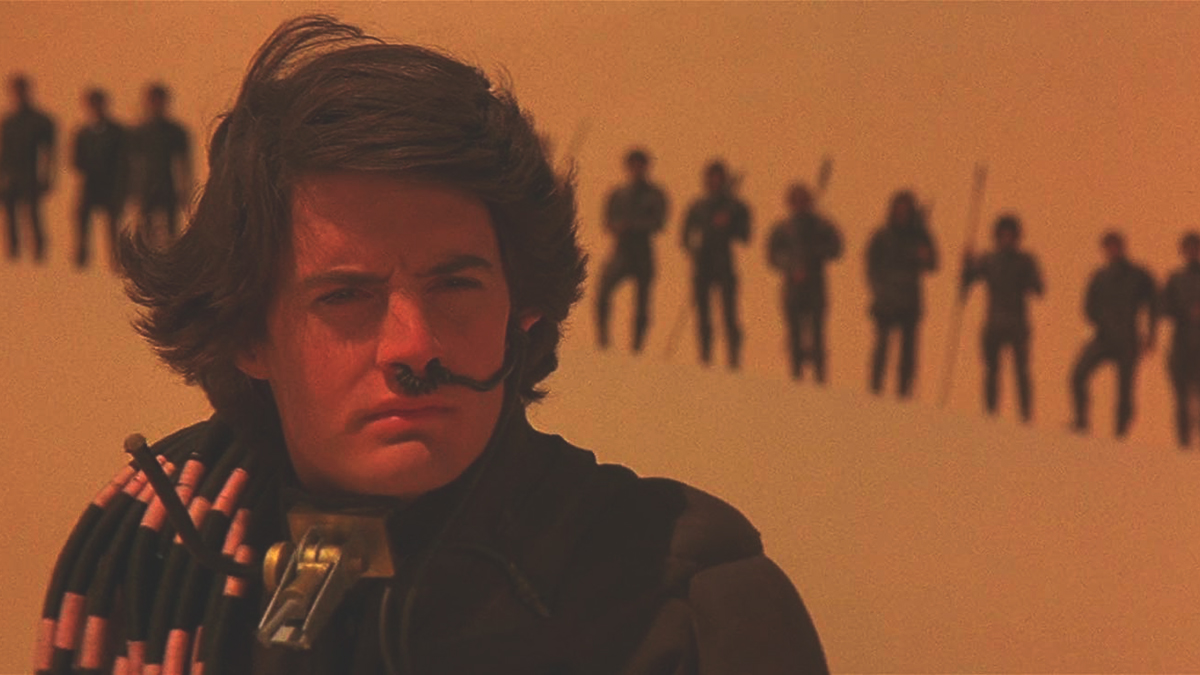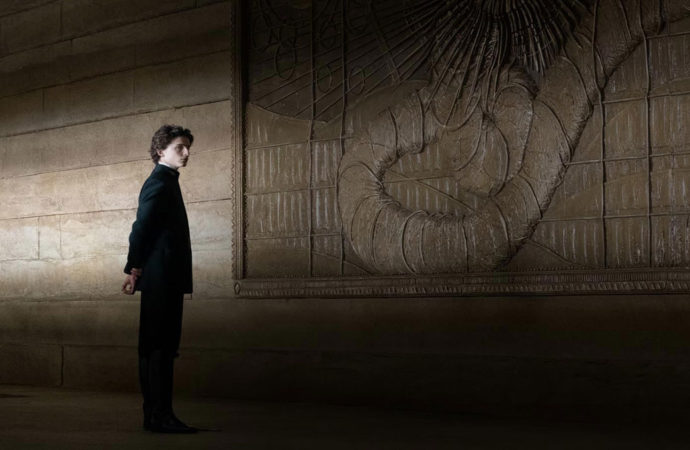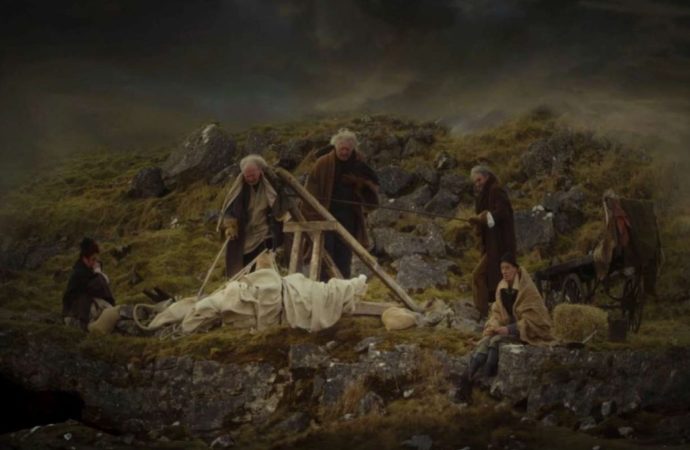It is curious how history repeats itself. In the early 80s of the last century, and after demonstrating talent and personality in his two previous films, David Lynch embarked on the massive adaptation of Frank Herbert‘s book Dune. Lynch, whose surreal and disturbing universe was demonstrated in his debut film, Eraserhead, tries to transport something of this universe to the adaptation, and succeeds in some moments: for example, in the scene in which Baron Vladimir Harkonnen is brought a poor guy who he bleeds to death by opening a plug in his chest, as if he were a tetra brick.
But Lynch fails miserably in his adaptation of Herbert’s book because, beyond these occasional moments, he gets bogged down in the narrative, which becomes clumsy and confusing. In this sense, for example, it is necessary to mention the abuse of the mental voices, which get in the way much more than they succeed in explaining. The special effects, very rudimentary even for the time, don’t help much either.
Nor was it helped by the influence of the producers, Raffaella and Dino De Laurentiis (the latter uncredited), who had already produced another space opera, Flash Gordon, in 1980. The two films end up being more similar than they might seem at first glance: shot indoors, with rather megalomaniacal sets, with a wide variety of supporting characters (both share, in fact, Max von Sydow), and both using rock bands that, at the time, were quite popular (Queen in the case of Flash Gordon, Toto in that of Dune). Both, by the way, also share the fact that they crashed at the box office, although the shock was much more severe in the case of Dune.
Lynch has always disowned this film, claiming precisely that he suffered a tremendous marking by the De Laurentiis that prevented him from developing his creativity… although his next film, the celebrated Blue Velvet, was produced by them under a contract that gave the director total creative freedom and the final cut, no less. Be that as it may, Lynch realized (in time!) that large-format cinema was not the way to channel his ideas, and returned to settle in the more modest scale productions, in which he has developed the rest of his career until today.

Kyle MacLachlan, much better Paul Atreides than Timothée Chalamet.
Villeneuve’s transition from small-scale cinema to big-budget blockbusters has in common with Lynch’s that Dune appears in both. And also something much less anecdotal and more worrying: in the same way that 1984’s Dune engulfed Lynch’s creative capacity, 2021’s has almost completely destroyed Villeneuve’s. It does not seem, at least in the light of his three large-scale films (Arrival, Blade Runner 2049, and the one we are concerned with here), that this is the best way to explore his ideas.
There were, and very interesting ones, in his previous works on a smaller scale. It is enough to remember, for example, Incendies, Prisoners, Enemy or Sicario. Villeneuve‘s cinema was then a cinema of searching for answers, and I stress the term “searching” because the answers mattered little. The characters in these films, in radically different contexts and settings, were similar in the fact that they were all in search of some kind of truth, all desperately pursuing some kind of question.
This cinema of the quest can still be traced in Arrival, of course. Even, pushing the interpretative margins a little, the protagonists of Blade Runner 2049 and Dune are also engaged in their own quests for answers. But, as happened to Lynch trying to insert his own ideas into his Dune, the Canadian director fails to make his imagination shine through the production apparatus of these proposals.
And also like Lynch, Villeneuve drowns in a disjointed and atomized narrative, in his eagerness to explain the political and hierarchical relationships of the different houses that make up this diptych, that ends up explaining very little. The 155 minutes of film in this Dune are like the 137 minutes of 1984: they barely serve to sketch out three or four ideas, the rest suffers from a tremendous arrhythmia. Moreover, Villeneuve makes what is both a daring and a serious mistake: he completely dispenses with any set piece that would make an impact on the audience, a requirement that is more than indispensable in a film of this size, with this budget, and with the objectives (industrial and artistic) with which it was conceived, which are those of a blockbuster.

I write all this with great regret, and I don’t want it to be misunderstood: beneath the monstrous scope of Dune lies the pulse of a magnificent director. A pulse that struggles to break through the technical paraphernalia to which it is subordinated. A pulse that, finally, is detectable in details such as, for example, that meticulous photography full of beautifully explanatory cross-cuts, the kind that enhances a film and which very few directors nowadays rely on. Villeneuve knows what he’s doing, there’s no doubt about that.
But Dune fails to transcend the epic scale of its scale and only makes a momentary impact on the viewer’s retina. As a blockbuster, it is utterly flawed, each of its shots exuding a pompous artificiality and an irritating megalomaniacal self-consciousness that plunge the proposal into a formality that, yes, is correct, but at the same time cold.
The problem with Dune is that Villeneuve fails to harmonize its own elements, which are beautiful on their own. Cinematography, music, editing, special effects, all are worthy of an Oscar nomination (which they probably will get). But the Quebecois director fails to crystallize them into a film that moves, that transcends its status as a seasonal blockbuster and assaults the soul, the heart, the mind of the viewer. Dune does not go beyond the brilliance of its own elements.
Watching Dune is an unsettling experience: the screen gives off beauty through all its micro-perforations, but that beauty does not permeate, it is as if there were a transparent barrier between the projected images and the stalls. A little in the Platonic manner of the cavern myth, what the viewer of Dune gets is only a representation of the film’s true possibilities. Dune is more about frustration, then, than the ultimate sensory experience that lies behind such cinematic exuberance and grandiloquence.









No one has posted any comments yet. Be the first person!